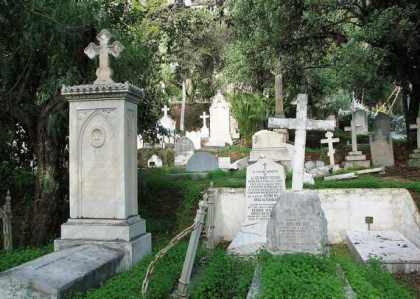Spanish author Rafael Torres has taken a look back at the memory of the British in Spain
He has published a book written in Spanish which has been translated into English titled, ‘The English Eternal Summer’ (Ediciones Xorki) which was published in October 2015 and looks at the English Cemetery in Málaga.
A young Briton who came to Spain to support the liberal release of the city of Torrijos (in 1831), a retired surgeon, a goalkeeper for Sevilla Football Club in the XIX century, a dumb German film actress, an English missionary and a Danish supporter of Franco against the Allied Powers, are some of the many lives which the journalist and writer Rafael Torres captures in his new book titled in Spanish ‘The English Cemetery’ and where in the graves he has discovered the details of the first protestants to visit Spain.

English Cemetery Málaga
https://cementerioinglesmalaga.org/en/
The author explained to Europa Press that the intention of his work was, in some measure; to recover the ‘invaluable contribution’ of the British residents to the history of Spain.
‘It is impossible to forget the British contribution to industry, and mining in particular, and the British names which we still see here, and who came and mounted ironmongers and forges, mines, and trade. Many engineers came here’ he recorded.
In each one of his 15 chapters, Torres uncovers and tries to ‘shine light’ on the complete lives of those who now inhabit an austere necropolis (in comparison with the ‘monuments’ and ‘illustrious names’ which populated other burial grounds such as the Père-Lachaise in Paris), with the objective to offer a ‘general panorama’ of the British presence in Spain, which dates back to the XVII century ‘and even before’, said the author and who today notes the number of British residents is close to a million.
‘Even now, the English cemetery has its illustrious people, such as the writer Gerald Brennan, or Spain’s Jorge Guillén. But more than that, as in the biographies which tell us many people died for from home, and this adds a touch of melancholy’.
In addition to the historic interest and the dates and the successive ‘curiosities’ of knowing what the work offers, the objective is also to ‘enjoy’ the genre of biographies, and their main attraction which is the life stories are ‘completely lived’. ‘Biographies are fascinating because we know how they are going to end’.
Torres recognised the difficulties he had encountered when trying to obtain information on wills and testimonies, when many of them were not famous during their lifetime and he said ‘I had to dedicate my ‘body and soul’ encouraged by my own curiosity and will’.
Looking further afield, Torres said we must do more to recover the historical heritage of Spain, which in his opinion is ‘paralysed’ and he considers many delays have been occurring from many points of view, and not only financial. ‘Our past resides in part in history, in the scruple to remember, which all the world knows to live is to remember’.
Among the historical facts the author recreates is the British Consul in 1824, William Mark, who lays at rest in Málaga.
The Protestants could not bury their dead in Catholic ground, as they were considered to be heretics, buried upright, in the dark of the night, with the starlight and that of the torches, into a hole in the beach to be left to the mercy of the tides and vermin.
William Mark was horrified when he saw how the British were being buried on the beach and one of the first things he did was to obtain permission for a necropolis for the Anglo-Saxons and Protestants, with the aid of General José Manso y Sola.
These and other facts form part of the ‘forgotten’ or ‘little known’ history which happened before the Costa del Sol became ‘abandoned to tourism and what money buys’. ‘Memory has an incredible value – all we have lived in the past hold the keys to what we will meet in the future’
